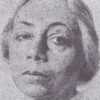Kathe Kollwitz

Kathe Kollwitz
KätheKollwitz,was a German artist, who worked with drawing, etching, lithography, woodcuts, painting, printmaking, and sculpture. Her most famous art cycles, including The Weavers and The Peasant War, depict the effects of poverty, hunger, and war on the working class. Despite the realism of her early works, her art is now more closely associated with Expressionism. Kollwitz was the first woman elected to the Prussian Academy of Arts...
NationalityGerman
ProfessionSculptor
Date of Birth8 July 1867
CountryGermany
Genius can probably run on ahead and seek out new ways. But the good artists who follow after genius - and I count myself among these - have to restore the lost connection once more.
I have received a commission to make a poster against war. That is a task that makes me happy. Some may say a thousand times that this is not pure art.... but as long as I can work, I want to be effective with my art.
Growing old is partly an inescapable process of accommodation and adjustment.
Bisexuality is almost a necessary factor in artistic production; at any rate, the tinge of masculinity within me helped me in my work.
My work is not, of course, pure art in the sense that Schmidt-Rottluff's is, but it is art nonetheless... It is all right with me that my work serves a purpose. I want to have an effect on my time, in which human beings are so confused and in need of help.
There must be understanding between the artist and the people. In the best ages of art that has always been the case. Genius can probably run on ahead and seek out new ways. But the good artists who follow after genius — and I count myself among these — have to restore the lost connection once more.
I do not want to die...until I have faithfully made the most of my talent and cultivated the seed that was placed in me until the last small twig has grown.
Fifty years ago in America, law schools had virtually no women students or professors, and their attitude then is much like that in the film industry today. The prevailing opinion was that women don't want to be lawyers and, anyway, they wouldn't be good at it; they're too emotional. But there was a movement that forced schools to change, and nobody today says women aren't capable lawyers. We're saying the same thing. Let women in, we'll show you we can do it.
It is my duty to voice the suffering of men, the never-ending sufferings heaped mountain-high.
I want to cultivate the seed that was placed in me until the last small twig has grown.
I am in the world to change the world.
Look at life with the eyes of a child.
The development of the national spirit in its present form leads into blind alleys. Some condition must be found which preserves the life of the nation, but rules out the fatal rivalry among nations.
Recently I began reading my old diaries. Back to before the war. Gradually I became very depressed. The reason for that is probably that I wrote only when there were obstacles and halts to the flow of life, seldom when everything was smooth and even. ... As I read I distinctly felt what a half-truth a diary presents.